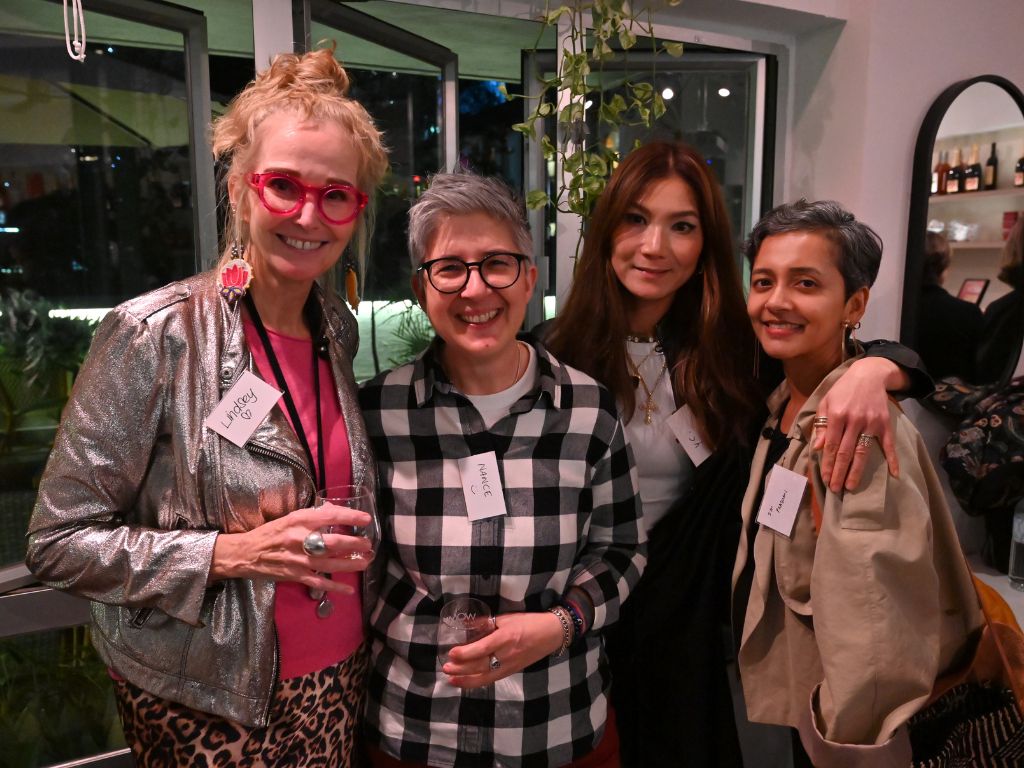Keeping Bowls Filled
Being Neighbourly x Feeding HK
- Author/ Being Neighbourly
Share
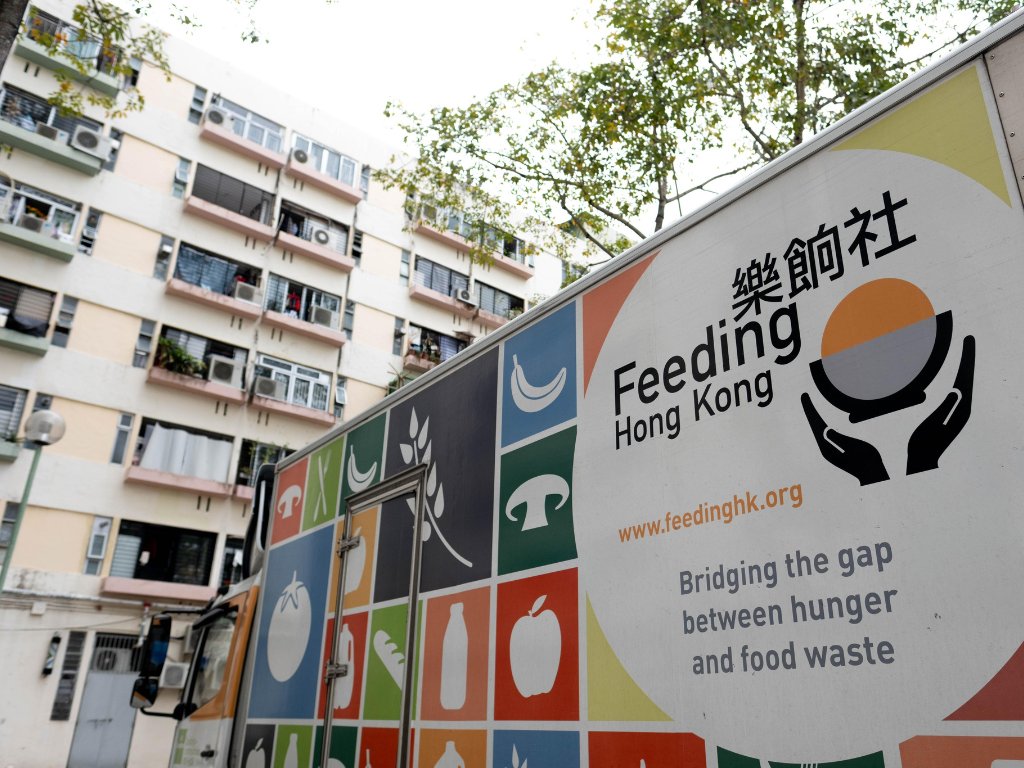
Feeding Hong Kong founder, Gabrielle Kirstein, OBE, is recalling her journey from visiting the city on a business trip to founder of the Hong Kong-registered charity, whose mission it is to save surplus food from the landfills, while delivering food security in Hong Kong. “I came to Hong Kong and just loved it, never wanted to leave, and, basically, never left,” she says laughing.
Originally in marketing, Kirstein landed a permanent position in a financial media company arranging conferences. Many of these, she says, were held in Southeast Asia and of the multifarious topics on which the arranged speakers spoke, she found she gravitated to development topics that underscored need.
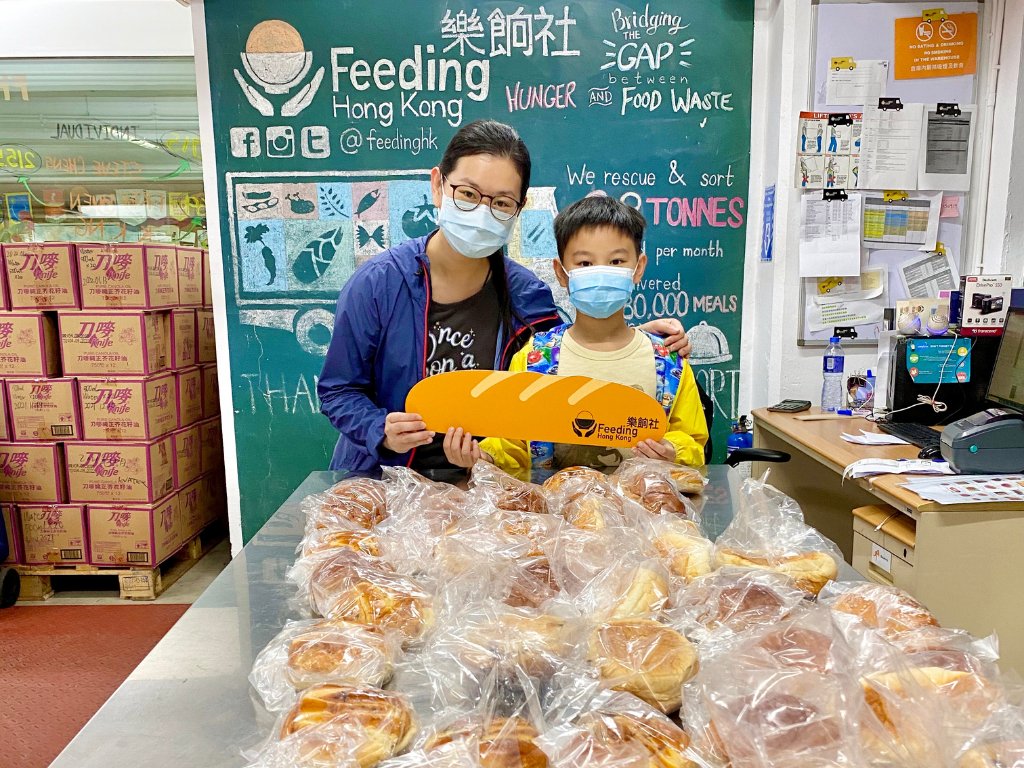
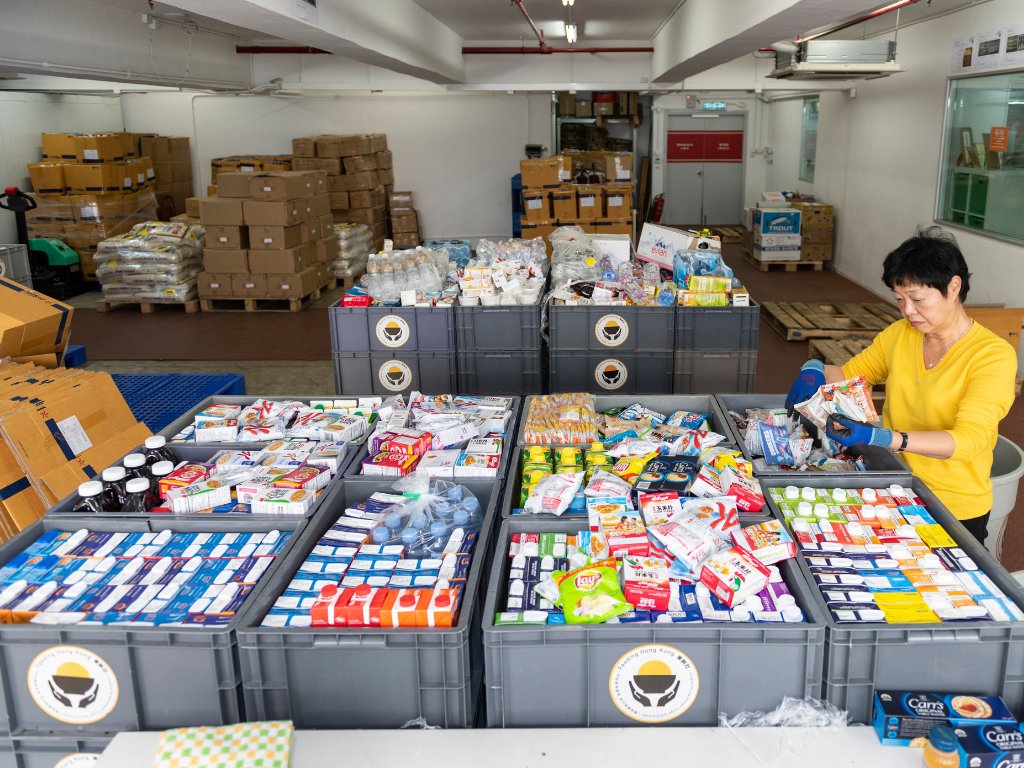
They say that the past is prologue, and in Kirstein’s case, her past work experiences certainly dovetailed into her next chapter. A conversation about sustainability with Dr. Christina Dean, founder of Hong Kong charity Redress, which has a mission to accelerate the transition to a circular fashion industry, led to the two women pondering over the situation of food waste in the city and how to tackle it.
“Originally, I thought this was going to mean learning all about composting, and how to deal with plate scraps, and mouldy food but quickly realised how much food that was still edible was heading straight to the landfill,” Kirstein shudders.
A conversation about the donation of surplus food in the UK with her father, who volunteered at a homeless shelter, led Kirstein to join the two dots — between food surplus and food need, and Feeding Hong Kong was born. “We ran as a volunteer project under Redress for about two years before establishing it as a new charity in 2011.”
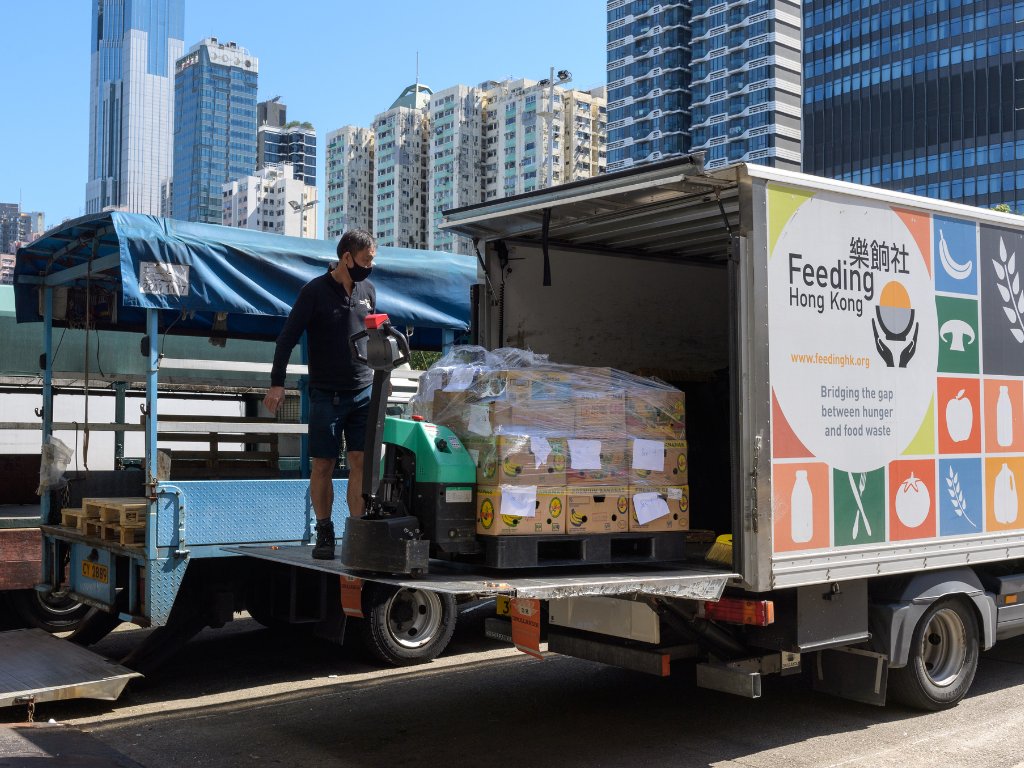
So, what is the Hong Kong situation and what does the future hold for Feeding Hong Kong, 13 years after its founding? In 2023, the charity rescued over 1,250 tonnes of surplus food, saved 2.5 million kg in carbon emissions and supported 3.7 million meals for vulnerable communities. Reasons for donation include short shelf life, approaching sell-by dates, labelling errors, discontinued brands, surplus inventories, minor recipe variations or damaged external packaging.
However, according to Kirstein, redistributing surplus food cannot alone deliver food security.
“We are a B2B charity, working behind the scenes to connect food companies with excess stock to charities feeding vulnerable charities. However, one of our greatest challenges is matching supply with demand”.
She, nonetheless, has a can-do perspective and points to how times are changing in a positive direction. “There is greater awareness than ever before about the gap between affluence and need in Hong Kong. There is also an understanding like never before of the environmental impact of food waste”.
Kirstein expands on the power of food redistribution to tackle these two problems.
“For just a 100HKD donation, each of us can help to mitigate food waste in Hong Kong and support 10 meals for vulnerable communities. This amount doesn’t go towards purchasing food, because we rescue it, but investing in the transport, storage and matching process to move food from where it is surplus to where it is needed,” she explains.
Eye on Feeding Hong Kong
Kirstein says her first call when she established Feeding Hong Kong was to Pret A Manger. “I was familiar with their record in the UK regarding re-distributing food that hadn’t sold, and so I just contacted them”. She says they immediately responded by inviting her in for a meeting and the rest was proverbial history.
Today, the charity works with over 185 food companies a year, including well-known retail chains, manufacturers and distributors and works with over 150 charity partners who distribute food to their network. Their focus is on small to medium NGOs including: crisis shelters, senior support services, refugee and new immigrant community centres and after-school clubs. Together, they support approximately 284,000 people per month.
While their B2B matchmaking approach has remained unchanged over the course of the 13 years of the charity’s existence, Feeding HK has launched various programs such as its Mooncake campaign to involve the public and re-distribute excess food, in this case mooncakes, that help to bridge the gap between surplus and need. It also creates volunteer opportunities and education for corporates and individuals in Hong Kong.
Says Kirstein, “Our work benefits the community as a whole, by making the best use of excess food in the city, in the most ethical, ecological and sustainable way, ensuring that good food is eaten rather than sentenced to the landfill.”
What’s the best work advice you have received?
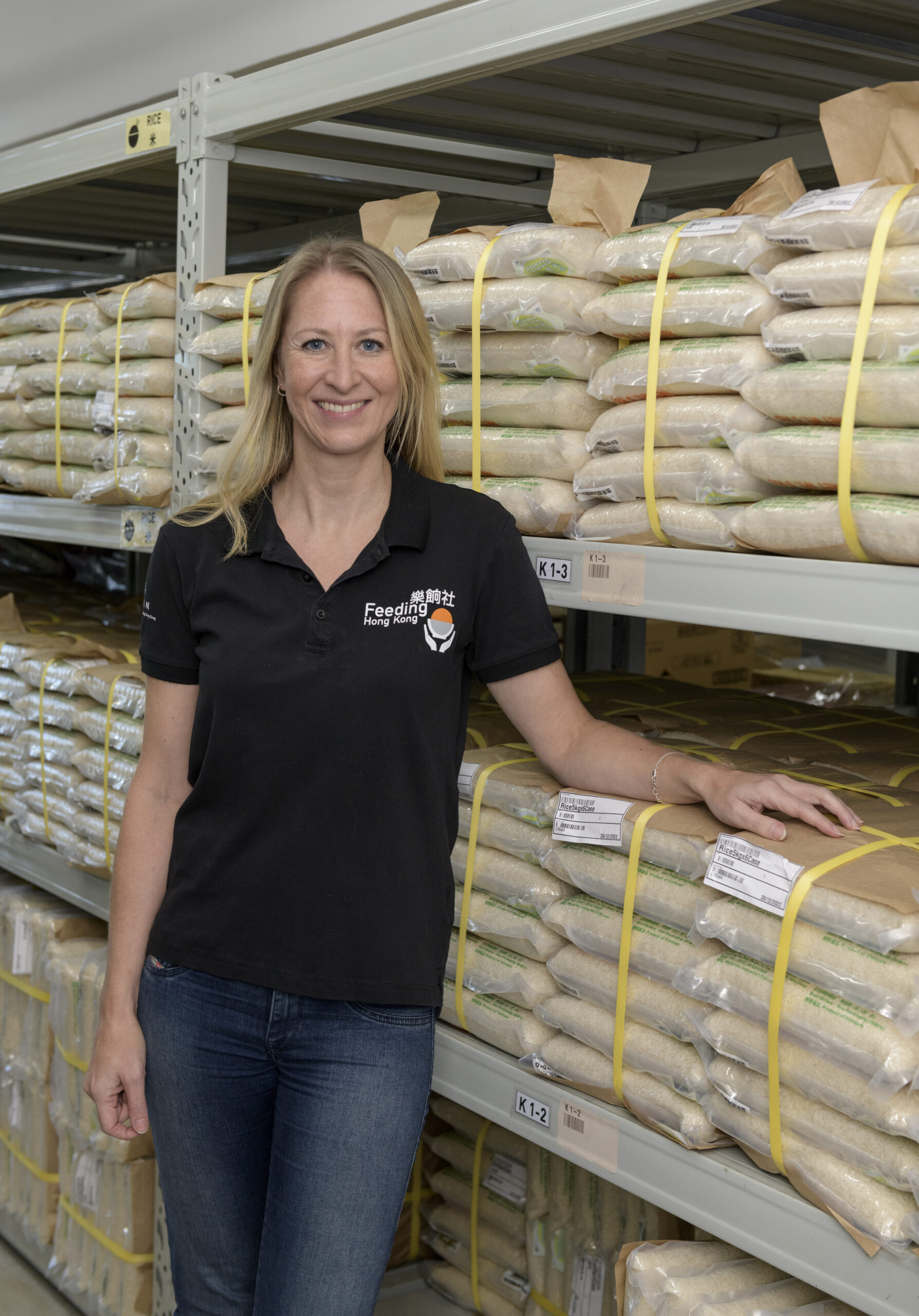
“It’s not work advice that spurs me. I do what I do because I hate food waste and I think everyone deserves three meals a day.
Growing up, not wasting food was part and parcel of everyday home life; partly because every penny spent on food mattered, partly because there were so many delicious and creative ways to turn leftovers into something new! Uneaten boiled potatoes became delicious potato cakes, curdled milk was used to make Irish soda bread, ragged looking carrots were turned into soup.
I was also acutely aware of those that had less than us.
Ensuring food security should not be a problem.”
Feeding Hong Kong Headquarters
Unit 715-717, Blk A2, Yau Tong Industrial City, 17-25 Ko Fai Rd, Yau Tong, Kowloon, Hong Kong
- +852 2205 6568
- https://feedinghk.org/
Share
About the Author

Being Neighbourly
For over 20 years, the people behind BN have been creating content on the best things in life: food, travel and inspirational people.
Coming Soon:
Available soon in our Shop!
Snippets
Stay Up To Date
Want the latest insights and fresh content delivered straight to your inbox? Subscribe to our newsletter and stay updated with our exclusive content!



